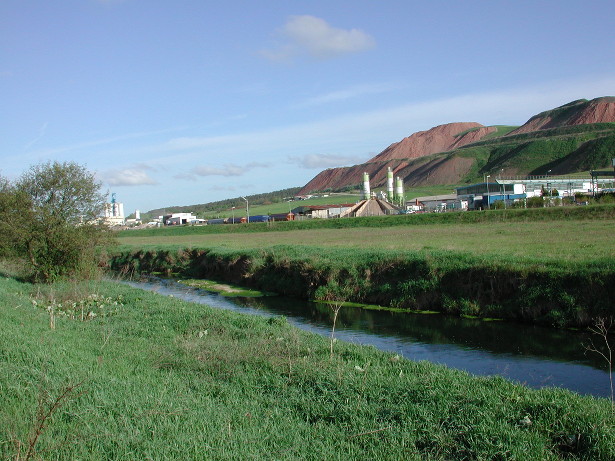In this post, Ralf Schäfer and Oliver Frör report on their recent paper “Saving freshwater from salts: Ion-specific standards are needed to protect biodiversity”.

Stream (Wipper) before potash piles near Sondershausen. The stream shows clear signs of salt contamination, as indicated by the algae (photo by C.-J. Schulz, TLUG)
Too much salt is not only harmful for humans, but may also adversely affect freshwater organisms. Anthropogenic salinisation of freshwater ecosystems has multiple drivers including agriculture, road de-icers and resource extraction (e.g. coal, gas). Climate change and increasing water demand will most likely exacerbate the problem. In the paper we argue that freshwater salinization is a global and growing environmental issue with multiple adverse effects on ecosystems and the services they provide, and that currently lacks adequate management and regulation. Only few countries such as the US and Australia have introduced water quality standards with respect to salinity. However, these focus on total salt concentrations and are insufficient to protect freshwater life, because the effects on freshwater organisms from waters with the same total salt concentrations but different ionic composition can markedly differ.
We provide a four step procedure how to derive standards for salinity, which may also be relevant to other emerging pollutants. Moreover, we outline several measures how to mitigate salinisation, which include higher efficiency in water use, reduction of point-source discharge and technical solutions such as water desalinisation. Finally, we outline how a transdisciplinary approach involving all stakeholders and taking better account of economic costs and benefits of different management options would improve salinity management, which may also inspire other environmental management problems.
The paper was authored by Cañedo-Argüelles M., Hawkins C.P., Kefford B.J., Schäfer R.B., Dyack B.J., Brucet S., Buchwalter, D. B., Dunlop, J.E., Frör, O. et al. and published in Science.
